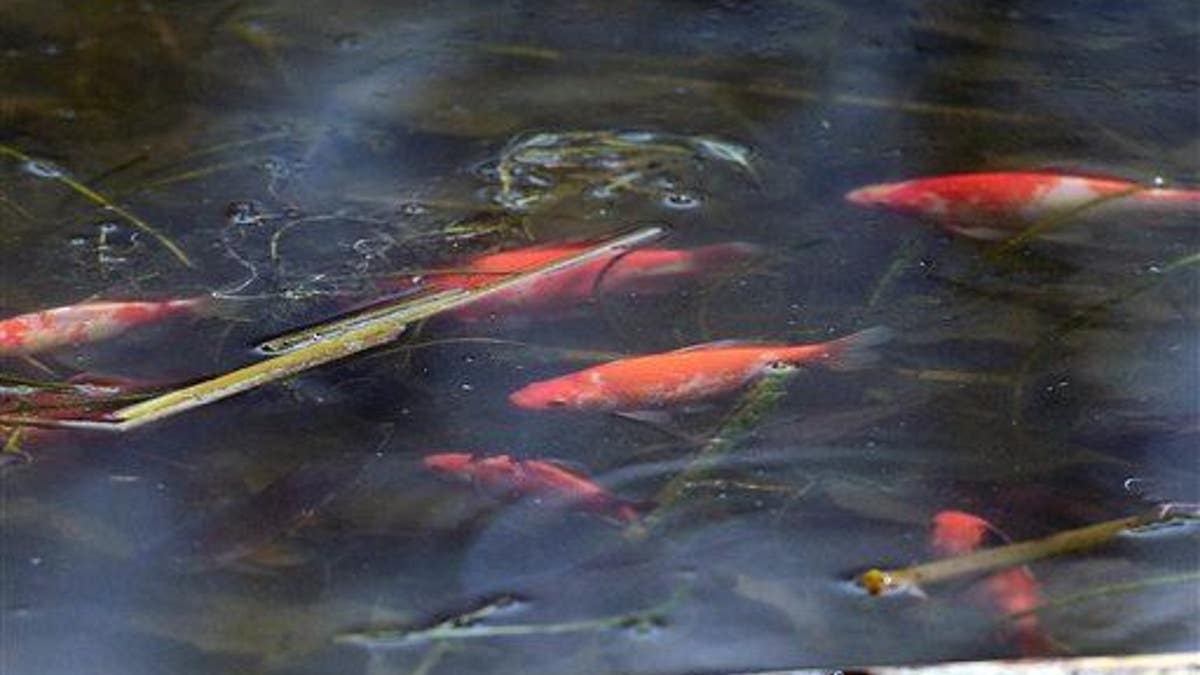
Goldfish swim in the water at Teller Lake No. 5 in in Boulder County, Colo., on April 3, 2015. (AP Photo/The Daily Camera, Jeremy Papasso)
While it’s a myth that a stiff drink makes you warmer in cold weather, a new study found that alcohol is the very reason some fish survive frozen conditions.
Per the BBC, goldfish and crucian carp developed the ability to survive months in icy lakes and ponds using the unique ability to convert lactic acid into alcohol.
As water freezes and oxygen levels dwindle, lactic acids produced from eating carbohydrates are unable to escape a fish's body. These trapped lactic acids would kill the fish in minutes were it not for an evolutionary trait that allows them to convert the acids into alcohol, which is then released through their gills.
And the alcohol levels recorded in the fish go higher the longer the freezing conditions hold. Paper co-author Michael Berenbrink says the fish can obtain blood alcohol levels that exceed the driving limit in European countries like Scotland.
"So they are really 'under the influence',” he quips. Per the BBC, the researchers did a side experiment for fun to see how long it would take for the fish to expel enough alcohol to make a drink. "If you put them in a beer glass and closed them off, it would take 200 days to get it up to 4%," says Berenbrink. But this doesn’t make a case for fish becoming our new drinking companions. "I don't want to encourage anyone to put their goldfish into a fridge," Berenbrink told Gizmodo. (Alcohol may help humans with creativity.)
This article originally appeared on Newser: Scientists Discover the Fishy Secret to Surviving Frozen H2O




















